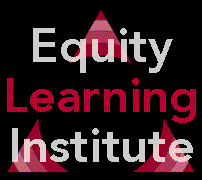
|
|
|
|
an EdChange project by Paul C. Gorski
|




|
Guide for Setting Ground Rules
Whenever you hope to facilitate conversations on social justice concerns, whether preparing for a one-hour workshop or weaving such discussions into a year-long class, a vital first step is the development of guidelines for participation. These guidelines, often referred to as "ground rules" or "community norms," should provide the community within a workshop or class a framework to ensure open, respectful dialogue and maximum participation. Generating a List of Ground Rules There are several effective ways to create ground rules or norms. If time is an issue, as it tends to be in short workshops, it may be necessary for you simply to list the ground rules for the group. Be sure to inquire whether the ground rules are agreeable and mention that if you had more time together, you would have preferred the group to generate the list. A second way to create ground rules is to list those rules you commonly use, then ask for additional ground rules from the participants. When somebody proposes a ground rule, ask the other participants if they agree to it. If most do, add it to the list. The best way to create ground rules, if you have the time, is to allow the participants to generate the entire list. Ask them to think about what they, as individuals, need to ensure a safe environment to discuss difficult and controversial issues. If the participants are having difficulty coming up with ground rules, or if they do not come up with a particular ground rule you feel is important to the success of your facilitation, try to prompt them toward it. If they still do not mention it, you can add it to the list. Examples of Widely Used Ground Rules Ground rules should be developed and adapted for every unique context. Appropriate ground rules may depend partially on age, region, and other contextual factors. The following list of common ground rules from equity, diversity, and social justice related classes and workshops should serve only as a starting point for your process of creating a similar list suitable to your own situation:
It is also important to set a ground rule for how participation will be managed. Do you prefer for participants to raise their hands and be called on or for people to speak freely? Remember that some people -- especially those who tend to be introverted -- need more time to process thoughts and speak, so the latter option may exclude them from the discussion. Still, the formal process of raising hands to be recognized may detract from the collective atmosphere needed to discuss sometimes-controversial issues. Strategies and Notes
Rethinking Ground Rules If a goal of conversations about equity and social justice is to challenge current structures and assumptions, we must look closely at all guidelines we use in our classes and workshops, asking ourselves who they support and who, if anybody, they privilege. As such, many educators and facilitators have begun to rethink the idea of ground rules and ways they currently are implemented. Recent critical analysis of common ground rules have resulted in a collective reconsideration of their role. This is because, too often, ground rules that are put in place, whether by an educator/facilitator or by participants, privilege the already-privileged groups in a dialogical experience. For example, in a dialogue about race, white participants will often support ground rules meant to keep anger out of the discussion--ground rules focused keeping them comfortable. When we consider who is protected by ground rules like "do not express anger," it becomes apparent that, intentionally or not, they protect the participants representing privileged groups. While I do not advocate dropping ground rules altogether; I do support the idea of seriously studying these issues and the possible ramifications of ground rules that might ultimately support the status quo by providing safety and comfort for those who, for the sake of their own learning, most desparately need to be made to feel uncomfortable. Consider opening this conversation within your class or workshop or among colleagues and challenge yourself to make sure that the discussions and dialogues you are setting up do not further oppress historically oppressed people. [ Return to the Awareness Activities Page ]
|